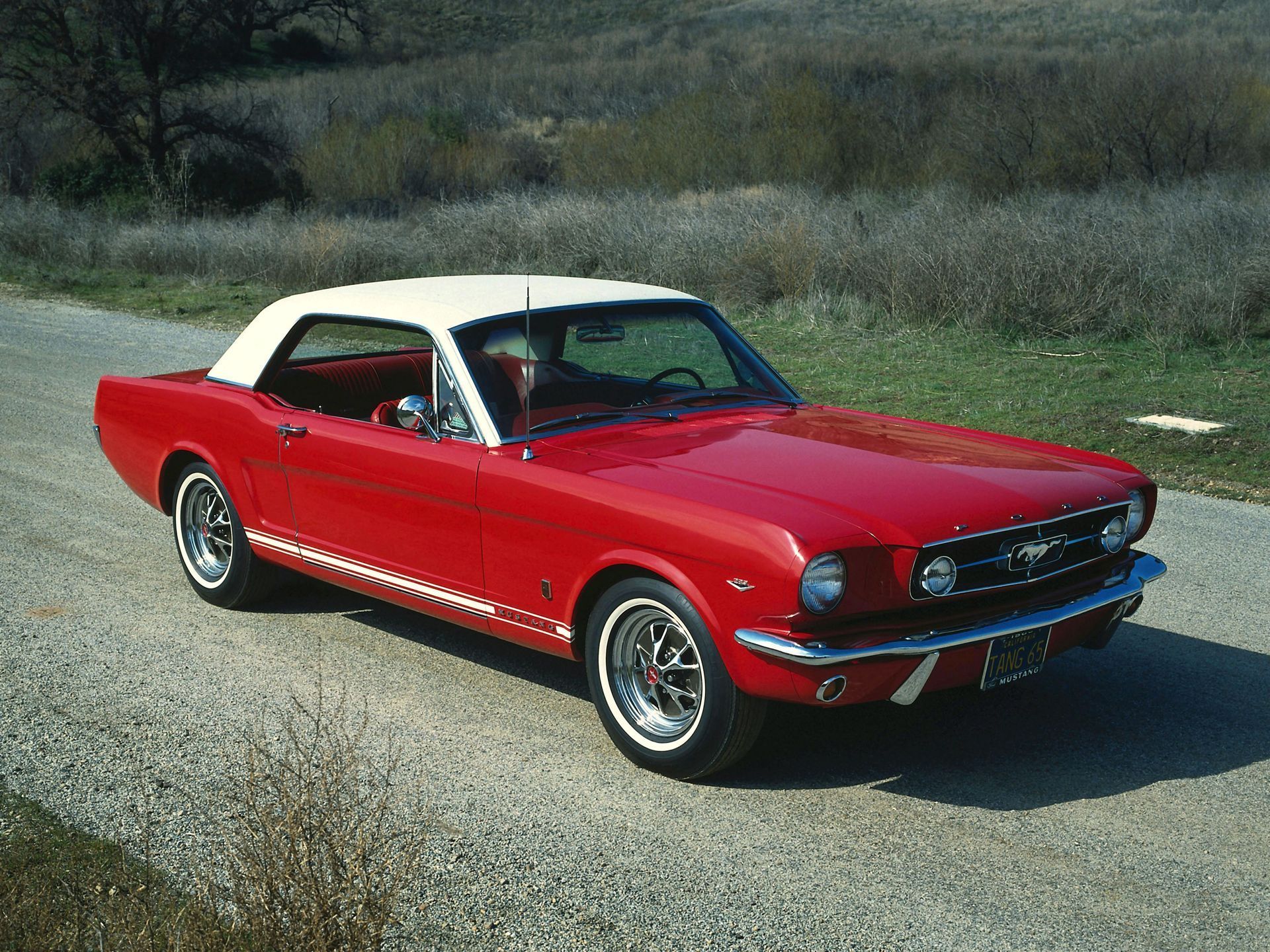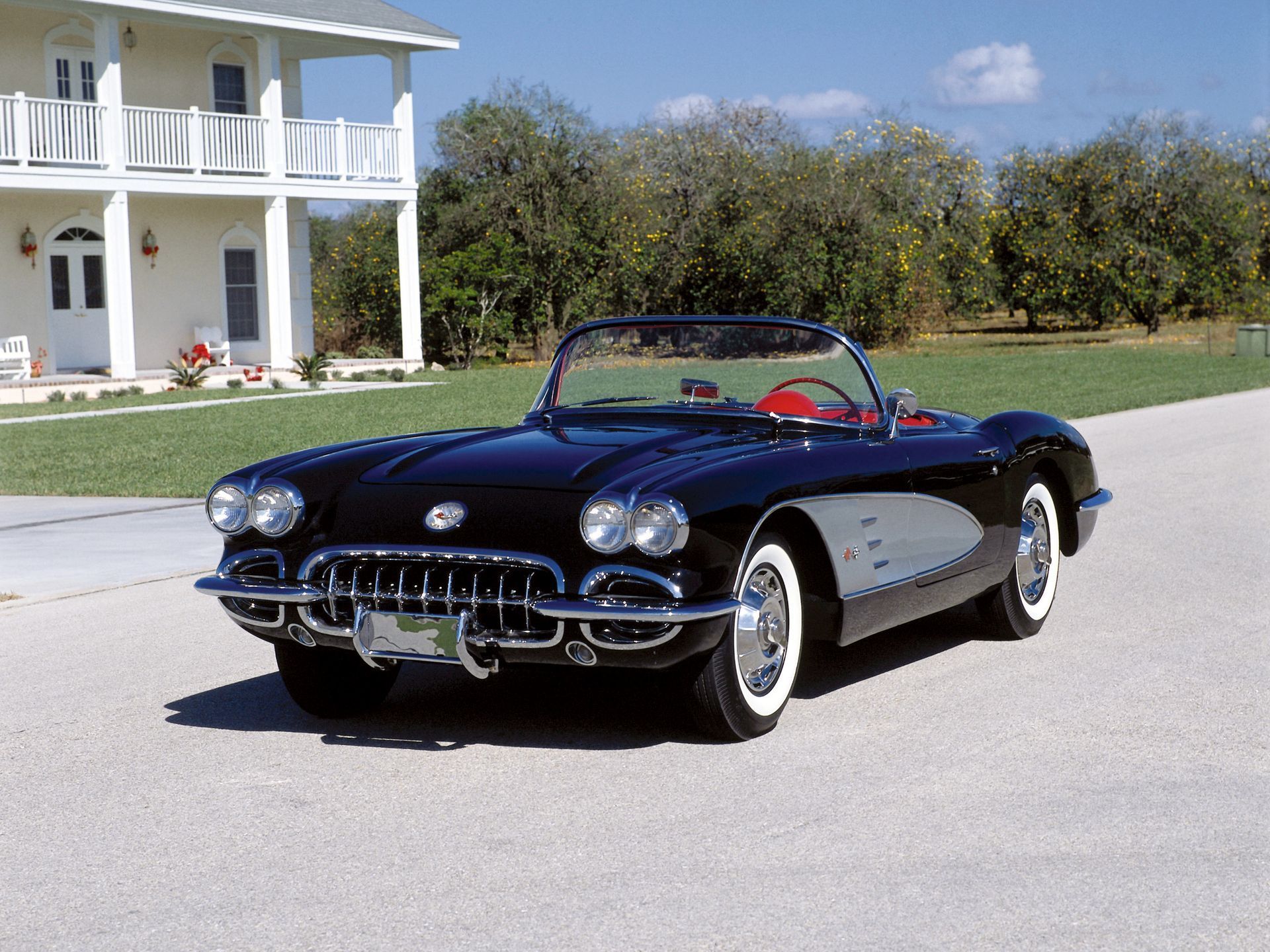October 10, 2025
Understanding the factors that affect your car's value can be key to making informed decisions about purchase, maintenance, and resale. This article explores several surprising aspects of your car's value that you may not have considered, providing data and insights aimed at every car owner. It’s crucial to grasp how these elements influence the financial life of a vehicle. While many know about obvious factors like mileage and condition, other variables play a significant—sometimes underestimated—role in determining market worth. By navigating through these intricacies, you can leverage more value through all phases of your car's lifecycle.
Depreciation Uncovered
Depreciation is often the largest cost factor of vehicle ownership. Once a new car is driven off the lot, it instantly loses value—a drawback that isn’t frequently considered by new owners. According to LendingTree, new cars depreciate about 20% in their first year of ownership, highlighting the immediate financial impact. Despite this inherent loss, vehicles can still be worthwhile investments when bought with careful consideration. To truly grasp the gravity of this initial devaluation, it’s vital to comprehend the other long-term implications this has on resale potential.
After the first year, cars continue to depreciate, typically at a slower pace. Across the span of five years, a vehicle may lose around 60% of its initial value. Depreciation is steepest during the earliest years, pressing owners to exercise caution with the choice of vehicle. For those eyeing the future resale markets, understanding these depreciation curves is crucial in making informed buying and selling decisions. Having this knowledge assists in selecting models that hold value better over time.
Multiple factors can exacerbate the depreciation rate of a vehicle. Notably, high mileage, poor maintenance, and accident history significantly diminish a car’s value more rapidly. Market trends, model reputation, and even brands’ perceived longevity play substantial roles. Environmental factors such as harsh weather conditions can also contribute to faster wear and tear. These elements can fluctuate, sometimes independently of the owner, underscoring the unpredictability of long-term value.
Depreciation is often the largest cost factor of vehicle ownership. Once a new car is driven off the lot, it instantly loses value—a drawback that isn’t frequently considered by new owners. According to LendingTree, new cars depreciate about 20% in their first year of ownership, highlighting the immediate financial impact. Despite this inherent loss, vehicles can still be worthwhile investments when bought with careful consideration. To truly grasp the gravity of this initial devaluation, it’s vital to comprehend the other long-term implications this has on resale potential.
After the first year, cars continue to depreciate, typically at a slower pace. Across the span of five years, a vehicle may lose around 60% of its initial value. Depreciation is steepest during the earliest years, pressing owners to exercise caution with the choice of vehicle. For those eyeing the future resale markets, understanding these depreciation curves is crucial in making informed buying and selling decisions. Having this knowledge assists in selecting models that hold value better over time.
Multiple factors can exacerbate the depreciation rate of a vehicle. Notably, high mileage, poor maintenance, and accident history significantly diminish a car’s value more rapidly. Market trends, model reputation, and even brands’ perceived longevity play substantial roles. Environmental factors such as harsh weather conditions can also contribute to faster wear and tear. These elements can fluctuate, sometimes independently of the owner, underscoring the unpredictability of long-term value.
The Role of Maintenance Records
Thorough maintenance records play a pivotal role in enhancing a car's market value. They serve as proof of diligent care, displaying the efforts made to maintain vehicle health and reliability. Buyers perceive a well-documented history as a signal of trustworthy investment, likely to alleviate future repair risks. Detailed records can add confidence during sales negotiations, thereby potentially boosting resale prices. Evidently, documentation not only ensures ongoing efficiency but also fosters better economic outcomes during resale.
Regular, consistent maintenance can positively influence a vehicle's value over its life. Maintenance keeps a car running efficiently, helping to prevent costly future repairs that inevitably arise from negligence. The car's overall health, indicated by service records, translates to greater appeal in the resale market. Buyers prioritize reliability, often reflected by a proven track record of consistent care. Therefore, maintaining service schedules and promptly addressing issues ensures long-term value preservation and attractiveness to future buyers.
Neglecting maintenance can have adverse effects on the vehicle’s resale prospects. Auction and private sales data suggest that cars lacking service histories are prone to incur lower bids. Unattended wear and tear or mechanical dysfunction also lead to significant valuation discounts. Prospective buyers often see neglect as a red flag for unforeseen issues, leading to reduced willingness to pay a premium. Effectively, a car's resale value depends heavily on its maintenance history to validate its reliability and worth.
Thorough maintenance records play a pivotal role in enhancing a car's market value. They serve as proof of diligent care, displaying the efforts made to maintain vehicle health and reliability. Buyers perceive a well-documented history as a signal of trustworthy investment, likely to alleviate future repair risks. Detailed records can add confidence during sales negotiations, thereby potentially boosting resale prices. Evidently, documentation not only ensures ongoing efficiency but also fosters better economic outcomes during resale.
Regular, consistent maintenance can positively influence a vehicle's value over its life. Maintenance keeps a car running efficiently, helping to prevent costly future repairs that inevitably arise from negligence. The car's overall health, indicated by service records, translates to greater appeal in the resale market. Buyers prioritize reliability, often reflected by a proven track record of consistent care. Therefore, maintaining service schedules and promptly addressing issues ensures long-term value preservation and attractiveness to future buyers.
Neglecting maintenance can have adverse effects on the vehicle’s resale prospects. Auction and private sales data suggest that cars lacking service histories are prone to incur lower bids. Unattended wear and tear or mechanical dysfunction also lead to significant valuation discounts. Prospective buyers often see neglect as a red flag for unforeseen issues, leading to reduced willingness to pay a premium. Effectively, a car's resale value depends heavily on its maintenance history to validate its reliability and worth.
The Influence of Brand and Model
Brand perception significantly affects how car value is assessed in the market. Established brands with lasting reputations for reliability and innovation tend to hold value better. Consumers often sway towards known entities, viewing them as dependable with a lower risk of unexpected problems. Consequently, vehicles from premium brands can command higher resale prices, attributed to their perceived worth and buyer loyalty. This intrinsic brand value, fueled by consistent quality and reputation, becomes a crucial determinant of a car's market value.
Certain models maintain better resale values due to longevity and sustained demand. Long-running models with consistently high sales often indicate consumer satisfaction and reliability, fostering trust in used car buyers. Additionally, economic and efficient models aligned with consumer trends tend to appreciate. Popularity also influences how vehicles are perceived, directly impacting the financial prospects of selling. Buyers and sellers account for these market dynamics, steering choices towards models likeliest to yield long-term fiscal advantage.
A car's origin, whether domestic or foreign, plays a vital role in value perception and depreciation. Historically, foreign brands, particularly Japanese, have been famed for durability and efficiency, leading to better value retention. American brands, although improving, often face faster depreciation but generally lower repair costs, presenting a varied investment scenario. Each has a dedicated clientele and resale appeal, varying strongly between markets and economic conditions. Prospective buyers weigh these considerations in determining where to place their automotive investments.
Brand perception significantly affects how car value is assessed in the market. Established brands with lasting reputations for reliability and innovation tend to hold value better. Consumers often sway towards known entities, viewing them as dependable with a lower risk of unexpected problems. Consequently, vehicles from premium brands can command higher resale prices, attributed to their perceived worth and buyer loyalty. This intrinsic brand value, fueled by consistent quality and reputation, becomes a crucial determinant of a car's market value.
Certain models maintain better resale values due to longevity and sustained demand. Long-running models with consistently high sales often indicate consumer satisfaction and reliability, fostering trust in used car buyers. Additionally, economic and efficient models aligned with consumer trends tend to appreciate. Popularity also influences how vehicles are perceived, directly impacting the financial prospects of selling. Buyers and sellers account for these market dynamics, steering choices towards models likeliest to yield long-term fiscal advantage.
A car's origin, whether domestic or foreign, plays a vital role in value perception and depreciation. Historically, foreign brands, particularly Japanese, have been famed for durability and efficiency, leading to better value retention. American brands, although improving, often face faster depreciation but generally lower repair costs, presenting a varied investment scenario. Each has a dedicated clientele and resale appeal, varying strongly between markets and economic conditions. Prospective buyers weigh these considerations in determining where to place their automotive investments.
Market Trends and Economic Shifts
Fluctuating fuel prices greatly influence car value, forcing shifts in consumer demand. During periods of high fuel costs, demand for fuel-efficient cars like hybrids and electric vehicles rises, positively impacting their market value. Conversely, large gas-guzzlers see depreciation as interest and demand wanes. Markets react dynamically to these pressures, encouraging owners to be mindful of the economy when making automotive decisions. Ultimately, fuel pricing plays a critical role in value variation and consumer behavior related to car assets.
Broad economic conditions significantly impact car value, reflecting their volatile nature. During economic recessions, reductions in consumer purchasing power and increased prudence among buyers lead to declining vehicle values. Conversely, in booming economies, demand for new cars rises, spurring market activity and positively affecting resale prospects. These trends underscore the importance for sellers to monitor economic fluxes and adjust strategies accordingly. Being knowledgeable about such shifts allows for strategic timing and yields maximum benefits in sales or purchases.
Recent supply chain disruptions have demonstrated the immediate effects on vehicle values. Shortages in parts and delays in production result in decreased availability, driving up prices for both new and used cars. Conversely, saturation in market supply leads to heightened competition and reduced values. This stark contrast reveals the intricate balance between industry supply chains and market pricing. By understanding this correlation, vehicle owners and buyers can capitalize on market nuances, optimizing for better financial results.
Fluctuating fuel prices greatly influence car value, forcing shifts in consumer demand. During periods of high fuel costs, demand for fuel-efficient cars like hybrids and electric vehicles rises, positively impacting their market value. Conversely, large gas-guzzlers see depreciation as interest and demand wanes. Markets react dynamically to these pressures, encouraging owners to be mindful of the economy when making automotive decisions. Ultimately, fuel pricing plays a critical role in value variation and consumer behavior related to car assets.
Broad economic conditions significantly impact car value, reflecting their volatile nature. During economic recessions, reductions in consumer purchasing power and increased prudence among buyers lead to declining vehicle values. Conversely, in booming economies, demand for new cars rises, spurring market activity and positively affecting resale prospects. These trends underscore the importance for sellers to monitor economic fluxes and adjust strategies accordingly. Being knowledgeable about such shifts allows for strategic timing and yields maximum benefits in sales or purchases.
Recent supply chain disruptions have demonstrated the immediate effects on vehicle values. Shortages in parts and delays in production result in decreased availability, driving up prices for both new and used cars. Conversely, saturation in market supply leads to heightened competition and reduced values. This stark contrast reveals the intricate balance between industry supply chains and market pricing. By understanding this correlation, vehicle owners and buyers can capitalize on market nuances, optimizing for better financial results.
Hidden Costs and Add-ons
Owning a vehicle encompasses costs that extend beyond its initial purchase price. These include expenses for insurance, taxes, routine maintenance, and unforeseen repairs. Each component collectively influences the car value and must be factored into initial calculations. Understanding these associated costs provides a more comprehensive insight into vehicle ownership paradigms. Acknowledging these hidden facets encourages informed decisions that consider full financial commitments inherent in vehicle acquisition and sustenance.
Aftermarket add-ons have a varied impact on resale value, depending heavily on the nature and quality. So long as these additions correspond to market trends and enhance functionality, they may increase attractiveness and demand. However, overly unique or taste-specific customizations might detract, appealing only to niche buyers and limiting market scope. Thus, owners should approach modifications judiciously, considering resale prospects and broader appeal. Evaluating cost versus value addition serves as a guiding principle for aftermarket investments.
Your
car value
is influenced by numerous factors, some of which might not be immediately apparent. By understanding these elements, from depreciation to selling strategies, you can better preserve and even optimize your car's worth over time. Stay informed, maintain your vehicle diligently, and make strategic choices to ensure you get the most out of your automotive investment. This informed approach demands attention to fluctuating markets, evolving technologies, and potential resale avenues. Ultimately, optimizing a car’s value requires a thoughtful blend of diligent preservation and strategic execution across all aspects of ownership. For more information about the services that we offer, reach out to our incredible team at Classic Car Research today!
Owning a vehicle encompasses costs that extend beyond its initial purchase price. These include expenses for insurance, taxes, routine maintenance, and unforeseen repairs. Each component collectively influences the car value and must be factored into initial calculations. Understanding these associated costs provides a more comprehensive insight into vehicle ownership paradigms. Acknowledging these hidden facets encourages informed decisions that consider full financial commitments inherent in vehicle acquisition and sustenance.
Aftermarket add-ons have a varied impact on resale value, depending heavily on the nature and quality. So long as these additions correspond to market trends and enhance functionality, they may increase attractiveness and demand. However, overly unique or taste-specific customizations might detract, appealing only to niche buyers and limiting market scope. Thus, owners should approach modifications judiciously, considering resale prospects and broader appeal. Evaluating cost versus value addition serves as a guiding principle for aftermarket investments.
Your car value is influenced by numerous factors, some of which might not be immediately apparent. By understanding these elements, from depreciation to selling strategies, you can better preserve and even optimize your car's worth over time. Stay informed, maintain your vehicle diligently, and make strategic choices to ensure you get the most out of your automotive investment. This informed approach demands attention to fluctuating markets, evolving technologies, and potential resale avenues. Ultimately, optimizing a car’s value requires a thoughtful blend of diligent preservation and strategic execution across all aspects of ownership. For more information about the services that we offer, reach out to our incredible team at Classic Car Research today!






